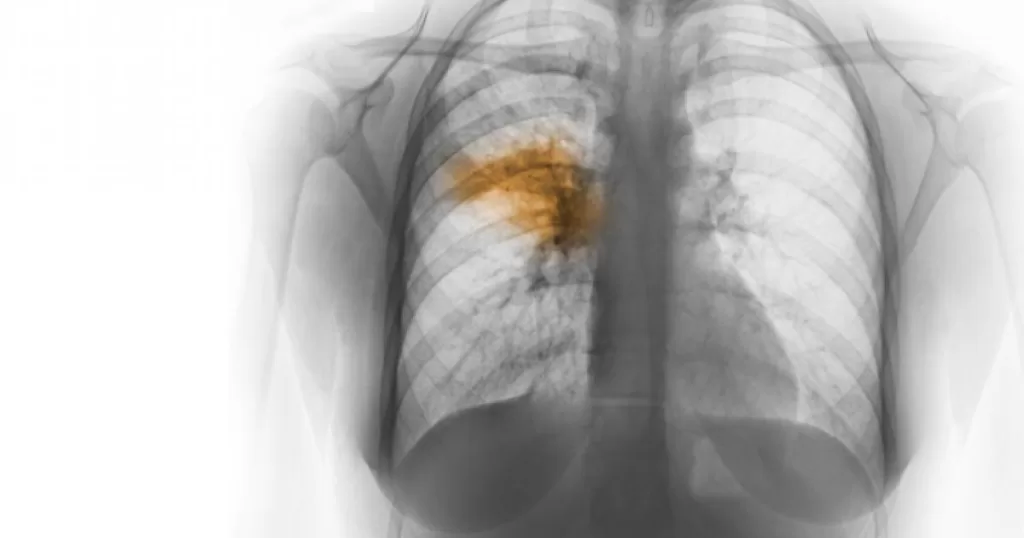Pneumonia is an infection whose effects particularly get to the air sacs or the lungs. So, fluid fills the air sacs, causing coughing and difficulty in breathing. A range of organisms including bacteria, viruses, and fungi are also a cause of pneumonia. The infection seriousness can change from mild to life-threatening. However, it mostly affects babies, the elderly above 65 years, and people with weak immune systems.
In older people who have been previously diagnosed with heart failure or lung problems, it can be a life-threatening condition.
Types of pneumonia.
- Hospital-acquired– This is common mostly in hospitals among patients. People infected are mainly patients suffering from other infections making it difficult for them to be treated. Those found in intensive care units or those on breathing machines are at a higher risk of contracting this type of pneumonia.
- Healthcare-acquired– This type occurs in people receiving care in outpatient clinics. This type causes anti-resistant bacteria to antibiotics.
- Aspiration– This occurs through the inhalation of food, drinks, or saliva into the lungs.
Causes of pneumonia.
So, germs are the leading cause of this illness. The body usually prevents these germs from infecting the lungs but at times they can overpower the immune system even when a person’s health system is good. Pneumonia is grouped according to the type that of germs that cause it
- Community-acquired bacteria is caused by a bacteria known as Streptococcus pneumoniae. This type occurs after contracting the flu, therefore, affecting the lung.
- Hospital-acquired pneumonia – Hospital-acquired bacteria cause it. The bacteria makes it irresistible to antibiotics. It mainly affects people on breathing machines or those in intensive care units.
- Healthcare-acquired – It is caused by a bacteria which is found in people who are in long-term care facilities such as kidney dialysis centers.
- Aspiration pneumonia – Some of the causes of this type of pneumonia are excessive drug use or alcohol consumption.
Signs and symptoms of pneumonia.

The signs and symptoms usually differ depending on factors such as the type of germs causing the infection, age, and general body health. They include;
- Pain in the chest when breathing or coughing.
- Increased confusion in adults above 65 years.
- Increased tiredness.
- Breath shortage.
However, newborns and infants, may not show any of the above signs. They may vomit and have a high fever.
Complications related to the illness
- Bacteremia – this is a condition where there is the presence of bacteria in the bloodstream and can cause organ failure.
- Difficulty in breathing- This mainly occurs when one has underlying health issues. Most patients require a breathing machine while their lungs heal.
- Accumulation of fluids in the lungs- It causes fluid to build up in the space between the lungs and chest cavity.
Treatment and prevention
Some of the ways to prevent the illness include
- Vaccination – Vaccines are available in many hospitals, making it easier to get one.
- Good hygiene practices- Regular hand washing is one of the ways one can prevent pneumonia.
- Avoiding smoking- Smoking causes lung damage, making it difficult for the lungs to defend themselves against infections naturally.
- Ensuring a strong immune system – By getting enough sleep and taking a balanced diet.
- Jim Carey origin, age, wife, children, movies, net worth.
- Travis Kelce age, education, wife, children, height, weight.
- Randy Meier Bio-Age, Edu, Children, Wife, Net Worth.
- Jose Mourinho age, childhood, wife, children, career, Net worth
- Coco Lee bio-age, family, husband, children, career.
- Al Gore age, family, wife, children, career, books, net worth.
- Clemente Morales Bio, Wiki, KTAB News, Age, Education, Family, Children, Wife, Net Worth, and Career
- List of Best private secondary schools in Nairobi County.
- Best Public High Schools in Kiambu County.
- List of Accredited Private Universities in Kenya
- List of best private primary schools in Kirinyaga County.
- Kenya Institute of special education, courses.
- What is the history of Kenyatta University?
- Kenya Medical Training College, courses, requirements.